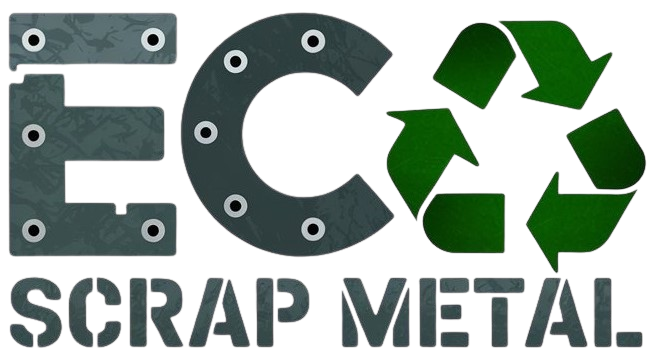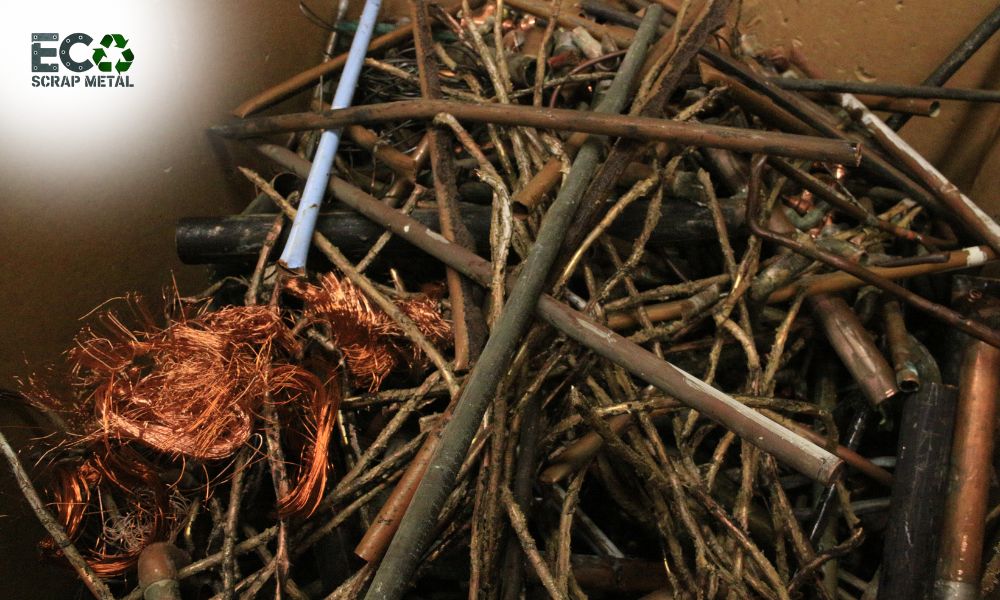Why Scrap Copper Prices Are Rising in Sydney
In recent years, scrap copper prices have experienced a steady upward trend in Sydney, a pattern that has caught the attention of industries, businesses, and individuals looking to profit from copper recycling. The rising prices of scrap copper in Sydney are attributed to a combination of factors, both local and global, that influence the demand, supply, and overall market dynamics.
Reason Scrap Copper Prices Are Rising in Sydney
In this blog post, we will explore the key reasons behind this surge in prices and how it affects various stakeholders in the copper market.
1. Global Copper Demand is Surging
One of the most significant factors driving the rise in scrap copper prices is the increasing global demand for copper. Copper is a crucial raw material in numerous industries, including electronics, construction, automotive, and energy. As countries around the world continue to develop and modernise their infrastructure, the demand for copper has skyrocketed.
Sydney, being a major hub in Australia, is directly impacted by these global trends. Australia, as a leading exporter of raw copper and copper-related products, plays a vital role in the global supply chain. The rise in demand, particularly in emerging markets like China and India, has led to an increase in the price of copper, both in its raw and recycled forms. This is due to the fact that copper is a finite resource, and the demand for it far exceeds the available supply, making scrap copper a valuable commodity.
2. Limited New Copper Production
While demand for copper continues to grow, the global supply of newly mined copper has struggled to keep up. Copper mining operations face numerous challenges, such as rising operational costs, environmental concerns, and the depletion of easily accessible copper ore deposits.
In Sydney and Australia, while mining operations are still in place, they cannot meet the growing global demand. This has further heightened the importance of scrap copper as a more sustainable and readily available alternative to newly mined copper. As a result, the price of scrap copper has risen as companies and individuals increasingly rely on it to fill the supply gap.
3. Environmental Impact & Sustainability Push
There has been a growing emphasis on environmental sustainability across industries in recent years. Copper mining and extraction processes are highly energy-intensive and can have significant negative environmental effects, including habitat destruction, water pollution, and greenhouse gas emissions. As global awareness of environmental issues grows, governments, corporations, and consumers are looking for more sustainable alternatives to sourcing copper.
Recycling scrap copper offers a more environmentally friendly option. The process of recycling copper requires far less energy than extracting and processing raw copper from the earth. This has led to a boom in the copper recycling industry, both locally in Sydney and globally. As a result, the demand for scrap copper has risen, pushing prices up.
4. Technological Advancements in Copper Recycling
Over the past decade, technological advancements in recycling methods have made it easier and more efficient to process scrap copper. Innovations in sorting, smelting, and refining techniques have enabled recyclers to extract more copper from waste materials, making it a more lucrative business. As recycling processes become more efficient, the market for scrap copper has become increasingly attractive to both small-scale collectors and large industrial recyclers.
In Sydney, this has meant more investment in recycling facilities, improved processes, and better returns for those involved in copper scrap collection and recycling. With technology enhancing the value of scrap copper, it has become an essential part of the supply chain for meeting global copper demand, thereby raising its price.
5. Impact of Supply Chain Disruptions
The COVID-19 pandemic and its subsequent global effects have caused significant disruptions to supply chains across various industries. For the copper market, the disruption of mining activities, transportation bottlenecks, and logistical issues have had a major impact on the availability of both raw and recycled copper.
With mining operations slowing down or temporarily halting in some regions, copper prices have surged due to the uncertainty around supply. Meanwhile, disruptions in the transportation and shipment of copper have led to further shortages, increasing the demand for locally sourced materials such as scrap copper. Sydney, being a major city with established infrastructure, has felt the effects of these disruptions, pushing up prices for scrap copper.
6. Rise in the Price of New Copper
The cost of new copper also plays a significant role in influencing the price of scrap copper. As the cost of producing new copper rises—due to factors such as increased energy costs, labor shortages, or stricter environmental regulations—scrap copper becomes an increasingly attractive alternative. Manufacturers and construction companies, in particular, may prefer to use recycled copper rather than pay the higher costs associated with newly mined copper.
In Sydney, this trend is evident as businesses turn to scrap copper to reduce production costs and meet their copper needs at a more affordable price. This rising competition for scrap copper in Sydney, coupled with global market forces, drives up its value.
7. Stronger Export Markets for Copper Scrap
Australia, including Sydney, has been a major exporter of scrap copper to international markets. Many countries, particularly in Asia, have been importing scrap copper to meet their growing demand for the material, further boosting the price. These export markets offer higher returns for scrap copper, making it an attractive option for businesses and individuals to sell their scrap copper at a premium.
As countries like China ramp up their copper recycling efforts, they are increasingly turning to Australia for scrap copper. Sydney’s well-developed infrastructure, including ports and transportation networks, allows it to easily export copper scrap to global markets, thereby driving up its price locally.
8. Speculation and Investment in Copper Markets
The financialisation of commodity markets has also played a role in the rising scrap copper prices. Investors have become more aware of the economic value of copper and other precious metals, and they are increasingly looking at copper as a store of value. Speculators in global markets are actively trading copper futures, which influences the price of both raw and scrap copper.
In Sydney, this investor interest in copper can contribute to local price fluctuations, as global copper market trends influence the local scrap copper market. While investors typically focus on raw copper, the increasing interconnectedness between raw and recycled copper markets means that investment trends can spill over into scrap copper prices.
How to Get the Best Price for Scrap Copper in Sydney
If you’re looking to capitalise on the rising prices of scrap copper in Sydney, selling it to a reputable scrap dealer is one of the best ways to ensure you get the best price. Here are some tips to maximise your return:
- Sort Your Scrap Copper: Different types of copper scrap (e.g., copper wire, copper tubing, and copper sheet) can be worth different amounts. Sort and clean your copper to ensure you receive the most competitive price from dealers.
- Research Local Scrap Dealers: Not all scrap copper dealers offer the same prices. It’s worth calling around or researching online to find dealers that offer competitive rates and have a solid reputation in the industry.
- Know the Current Market Price: Stay informed about the current market price for scrap copper, as prices can fluctuate depending on supply and demand. Websites and apps that track commodity prices can help you stay up-to-date.
- Choose a Licensed Dealer: Opt for scrap dealers who are licensed and compliant with local regulations. This ensures that you are dealing with a legitimate business and that your copper is being properly recycled.
- Consider Bulk Sales: If you have a large quantity of scrap copper, you may be able to negotiate a better rate. Dealers often offer higher prices for bulk sales, so if you’re selling in large quantities, it’s worth discussing pricing terms in advance.
By selling your scrap copper to trusted scrap metal dealers in Sydney, you can take advantage of the rising prices while contributing to the global effort to recycle copper sustainably.
Conclusion
The rising prices of scrap copper in Sydney are driven by a combination of global demand, limited new copper production, environmental sustainability concerns, and technological advancements in recycling. As the world continues to rely on copper for a variety of essential industries, the local market for scrap copper is benefiting from these broader trends.
For businesses and individuals looking to profit from the copper market, understanding the factors behind the price increase is crucial to navigating this dynamic and ever-changing industry.
By staying informed about market trends, economic shifts, and technological advances, scrap copper sellers in Sydney can take advantage of rising prices. Plus, by working with trusted scrap dealers, you can ensure you get the best price for your scrap copper while contributing to a more sustainable and circular economy.

